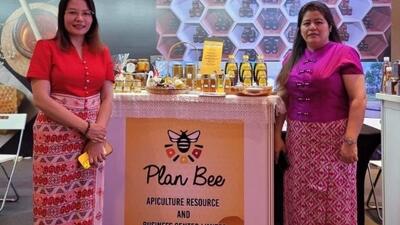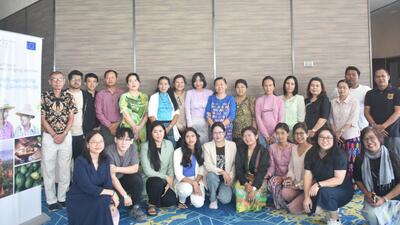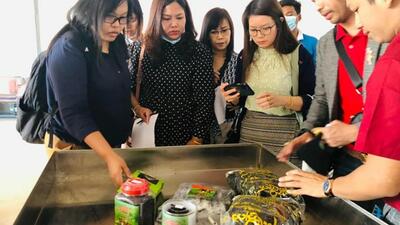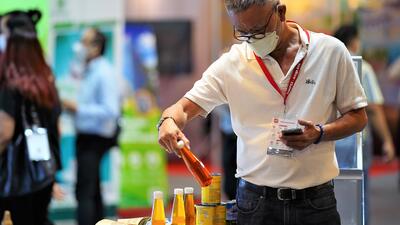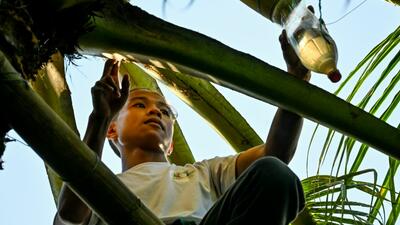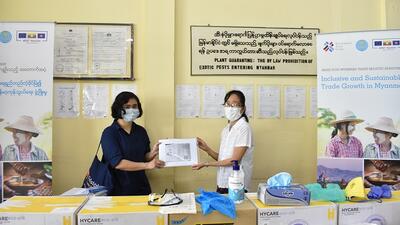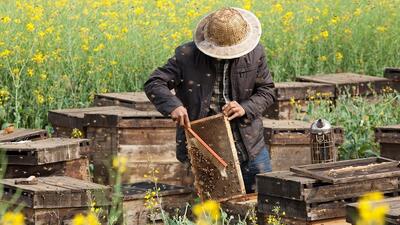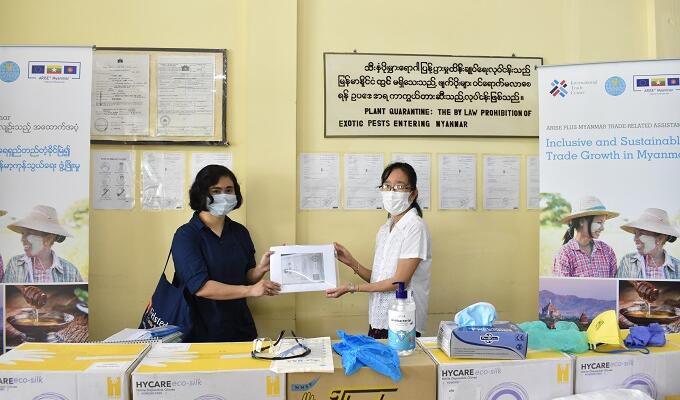
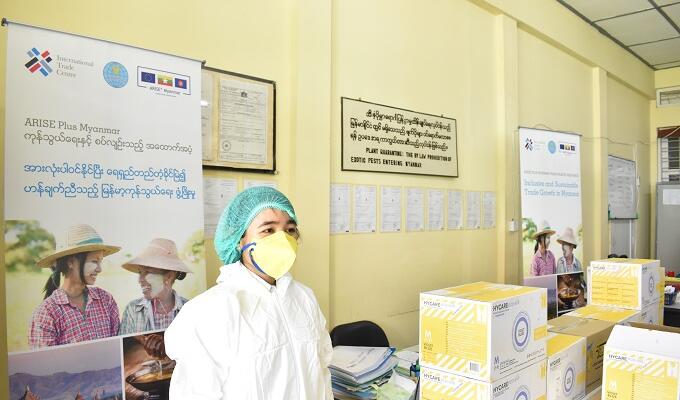
Story: Myanmar navigates the COVID-19 crisis
Efforts to increase economic growth and regional connectivity help the country stay on track during and after the pandemic.
When the going gets tough
It turns out that no business is immune to the effects of coronavirus. Most, if not, all sectors have felt the pinch in Myanmar. However, there are ways to emerge stronger and better than before from this incredibly tough period.
Here is a look at some of the efforts underway to support the country in staying on the path of sustainable and inclusive economic growth.
The remedy: trade policy
Support for the formulation of an effective trade policy in Myanmar continues through a host of activities. An Association of Southeast Asian Nations (ASEAN) Trade in Goods Agreement (ATIGA) Gap Analysis report is being compiled which will help identify gaps in technical barriers to trade. This will provide an opportunity for Myanmar to make trade easier and faster within the ASEAN.
Myanmar aims to increase its capacity to lead trade negotiations and Free Trade Agreements (FTAs). A comprehensive overview of Myanmar's existing trade in goods and related trade commitments is also being prepared for the purpose. This overview will include a special focus on health security and post COVID-19 trade-related safeguards.
As the country prepares for its second Trade Policy Review, the first draft of the government report is being finalized in close coordination with stakeholders. The process of a Trade Policy Review helps the country to identify gaps in its policies and legislation that prevent enhanced multilateral trade. This report draws from the information gathered on the ground, and in close collaboration with the World Trade Organization (WTO), to help improve the trade and business environment in the country.
Supporting the COVID-19 Economic Relief Plan
In April of this year, the Myanmar government issued its COVID-19 Economic Relief Plan. Together with the Department of Trade at the Ministry of Commerce, the ITC is working to ease the impact on the private sector through improvements to investment, trade, and the promotion of innovative products and platforms such as E-commerce, which offers new opportunities for exporting during COVID-19.
Ensuring food safety and business continuity
Continuous support is being provided to strengthen the regulatory control system and the compliance with food safety requirements. Later this month, companies in the food business working with the ITC will be able to participate in virtual sessions to help meet food safety standards. These free of charge sessions will help businesses meet international quality standards at various stages of the value chain starting from procurement and leading to finished product.
Myanmar Codex committee members will participate in virtual sessions on the Codex Alimentarius organized by the Confederation of Indian Industry Food and Agriculture of Excellence (CII-FACE).This will contribute to improvement in consumers' health protection and in promoting fair practices in Myanmar food exports. Biosecurity and COVID-19 prevention posters and pamphlets will also be distributed to food sector stakeholders.
An effort was made to ensure the safety of officials and the continuity of the inspection duties during this time. One hundred inspectors from the Plant Protection Division, Department of Agriculture received personal protective equipment including facemasks to ensure their safety. These inspectors are engaged in issuing phytosanitary certificates to producers and exporters during COVID-19. These certificates are mandatory for continuing operations following the requirements of food control system and food testing for exports. Biosecurity and COVID-19 prevention posters and pamphlets are also being designed and will be distributed to stakeholders in the food sector.
Continued support is being given to the honey sector as well. Follow up on the submission of the updated National Residue Monitoring Plan (NRMP) for access to the EU market for Myanmar honey has been completed. The NRMP is mandatory for any commodity of animal origin for export to the EU market. Access to the international market will open up a new world for small and medium businesses in the honey sector.
Virtual meetings with local honey advisers (trainers-cum-counsellors) and eight honey companies were organised to build awareness on biosecurity requirements during the COVID-19 situation. This will help engage them in the upcoming technical assistance on implementation of food safety systems Hazard Analysis and Critical Control Points (HACCP).
The ARISE Plus Myanmar Trade-Related Assistance Project
The International Trade Centre is making these efforts through the ARISE Plus Myanmar Trade-Related Assistance Project and contributing to inclusive and sustainable trade growth in the country.
With financial support from the EU, and in partnership with the Ministry of Commerce, it is working to ensure greater connectivity and economic integration between Myanmar and ASEAN in line with the ASEAN Economic Community (AEC) Blueprint 2025.
The project supports micro, small and medium sized enterprises (MSMEs) in Myanmar to explore business opportunities in the ASEAN single economic space, European Union (EU), and global markets. It also addresses compliance with Sanitary and Phytosanitary (SPS) measures in line with ASEAN and international commitments. The project provides trade policy formulation and implementation assistance for Myanmar to meet regional (ASEAN) and international (WTO, EU) commitments, and addresses non-tariff barriers (NTBs) along selected value chains.




